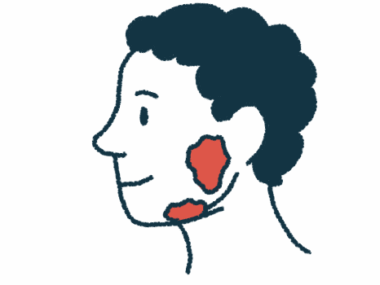FDA Decision on Recorlev for Endogenous Cushing’s Expected Early 2022
Written by |

The U.S. Food and Drug Administration (FDA) is reviewing an application from Strongbridge Biopharma seeking the approval of Recorlev (levoketoconazole) for the treatment of endogenous Cushing’s syndrome.
A final decision from the FDA is expected by Jan. 1, 2022 — meaning that Recorlev’s approval request will follow the standard 10-month review period.
Strongbridge was notified of the action target date in an official letter from the U.S. regulatory agency, which was issued earlier than expected.
“We are pleased with the FDA’s acceptance for filing of the Recorlev (levoketoconazole) new drug application,” John H. Johnson, Strongbridge’s CEO, said in a press release.
“We are advancing our commercial readiness plans and look forward to potentially bringing a new therapeutic option to the Cushing’s syndrome community in the first quarter of 2022,” Johnson said.
Endogenous Cushing’s syndrome is caused by abnormally high levels of the stress hormone cortisol, usually due to the presence of a benign tumor in the brain’s pituitary gland or in the adrenal glands, which sit atop the kidneys. Recorlev is designed to block cortisol production in the adrenal glands.
Strongbridge submitted a new drug application (NDA) for Recorlev in March. According to the company, the FDA’s letter notifying that the NDA had been accepted for review did not mention a plan to hold an advisory committee meeting.
The company’s NDA submission was mainly supported by data from two Phase 3 studies: SONICS (NCT01838551) and LOGICS (NCT03277690).
SONICS enrolled and treated 94 people with endogenous Cushing’s, with promising results. Specifically, 30% of participants saw their cortisol levels normalize after six months of treatment with Recorlev, without requiring any dose increments during that period.
LOGICS enrolled participants from SONICS, as well as additional patients, and evaluated the effects of Recorlev withdrawal. The results indicated that withdrawing the investigational treatment caused patients’ urinary cortisol levels to rise.
Findings from these trials also have indicated that treatment with Recorlev can lower the risk of heart disease, ease symptoms, lower cholesterol levels and body fat, and help control diabetes in people with endogenous Cushing’s syndrome.
Quality of life was found to be improved and depression lessened after treatment with Recorlev.
The NDA also included safety data from the ongoing, open-label OPTICS trial (NCT03621280), in which participants from previous studies will continue receiving Recorlev for up to three years.
According to Johnson, the FDA’s decision to review the NDA for Recorlev, “reflects the comprehensive clinical evidence that went into the NDA submission, including the positive and statistically significant efficacy and safety results from the multinational Phase 3 SONICS and LOGICS studies evaluating Recorlev as a potential treatment option for adults with endogenous Cushing’s syndrome.”





